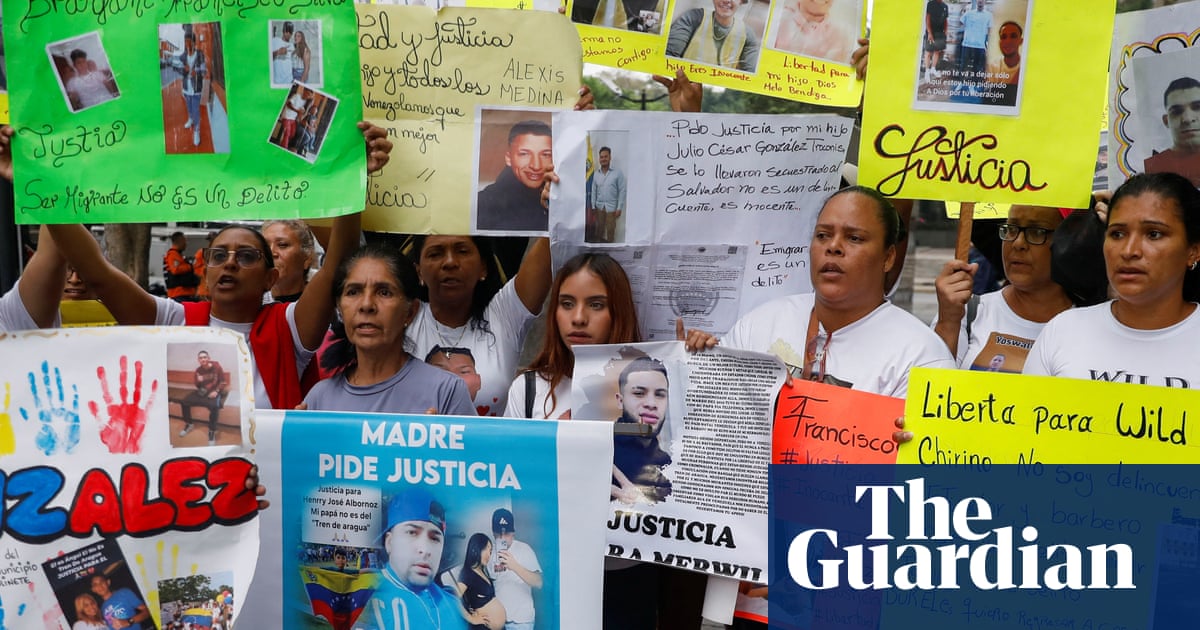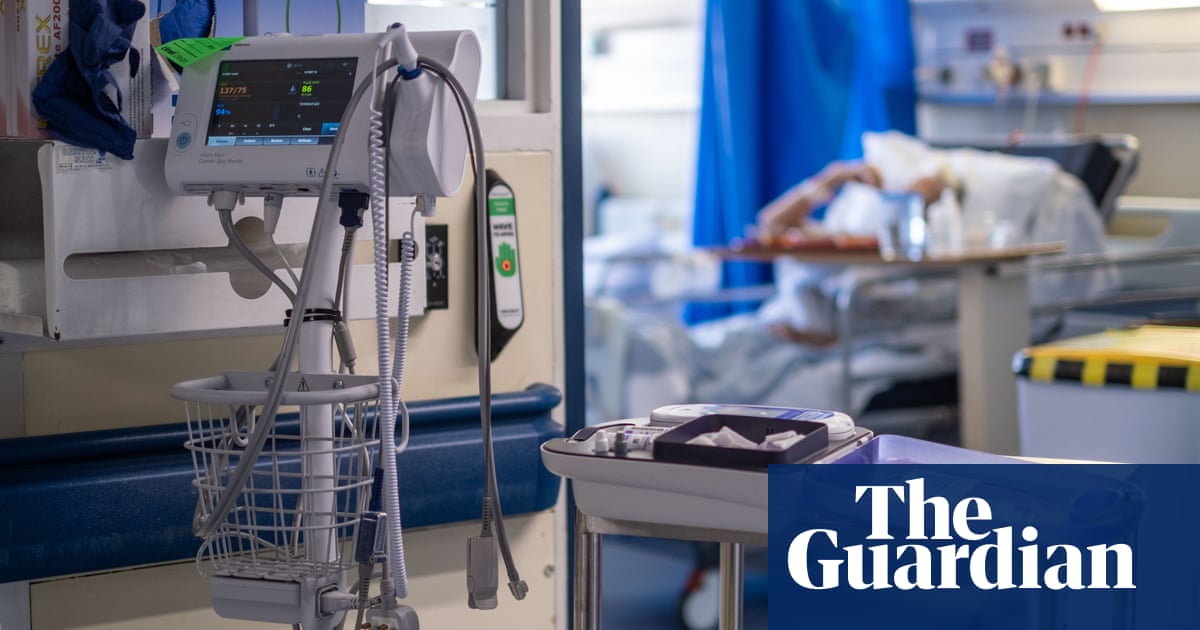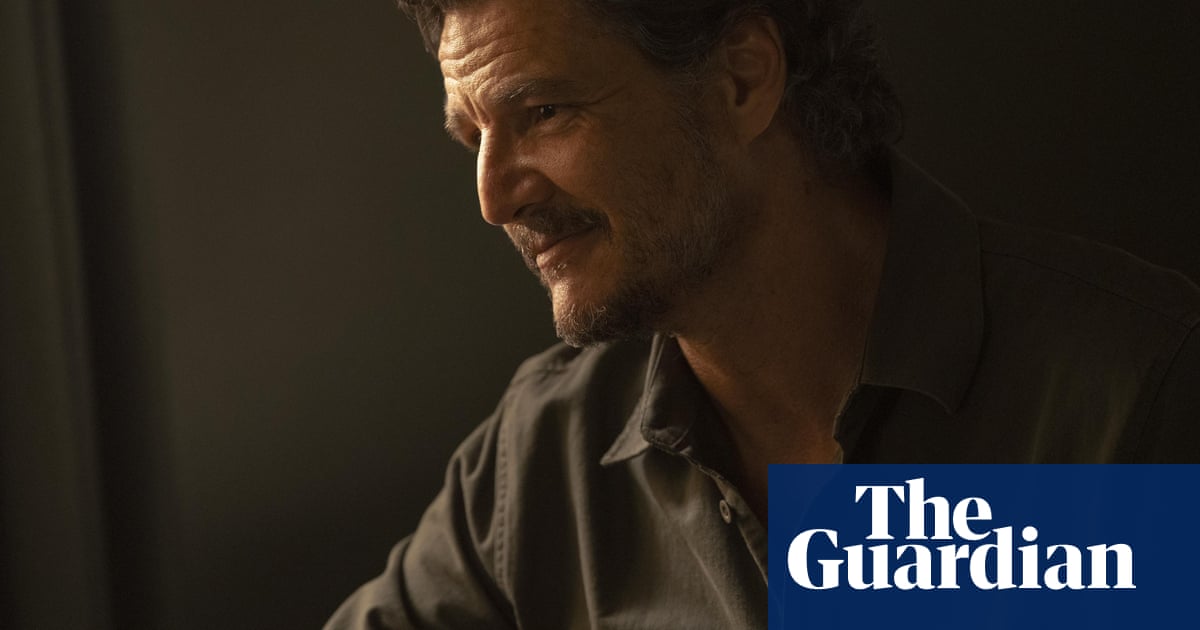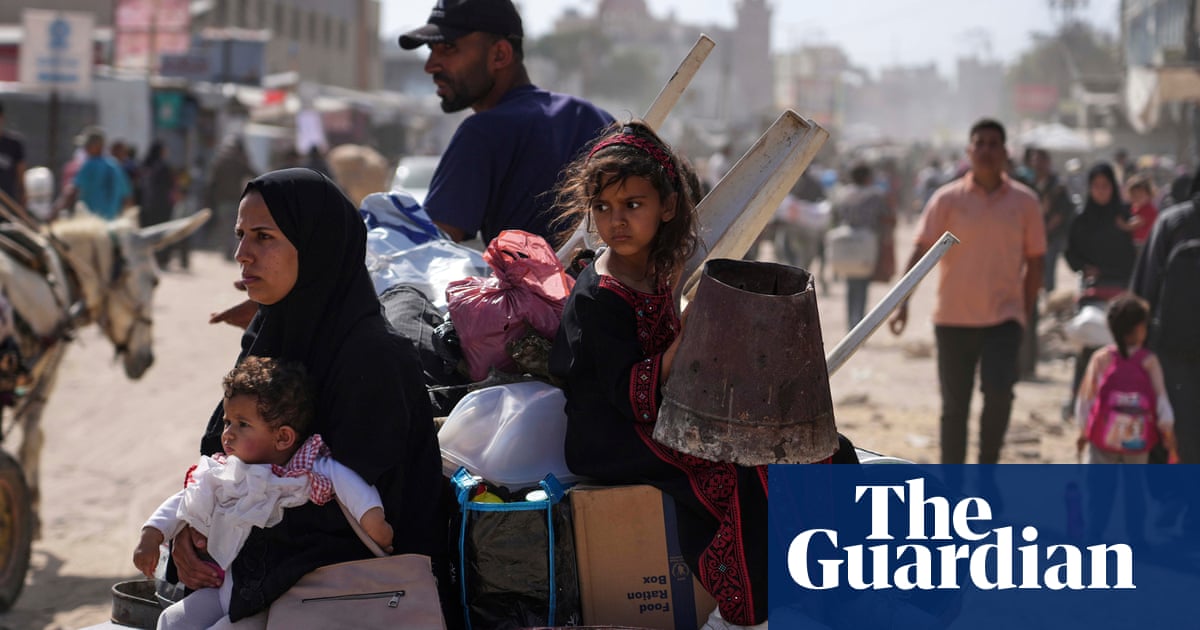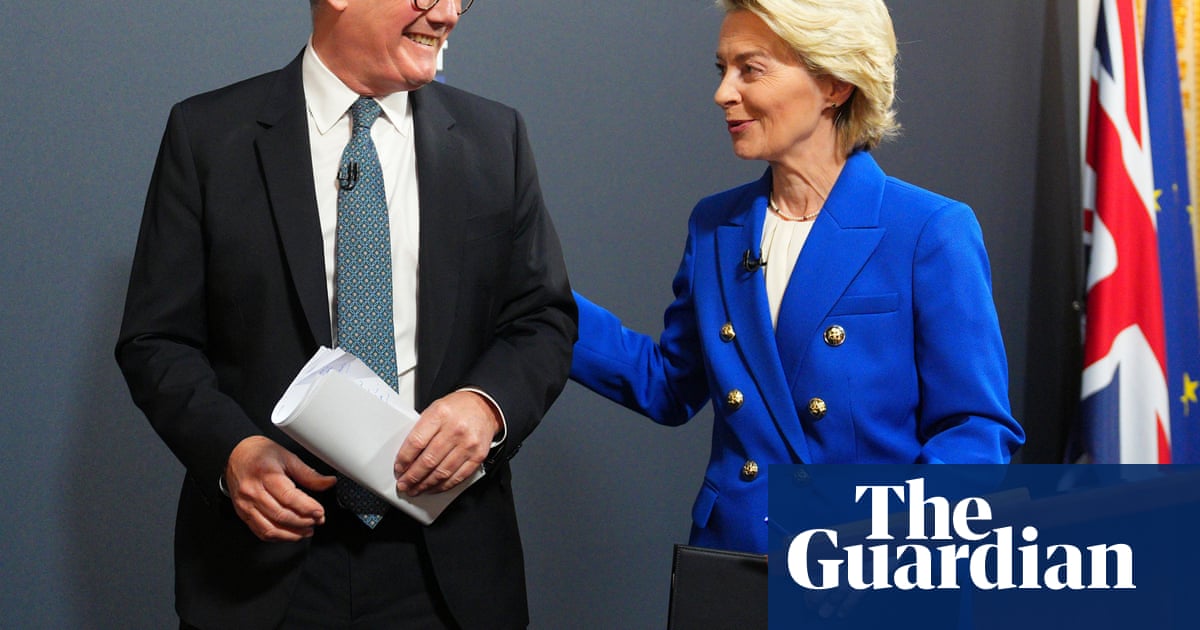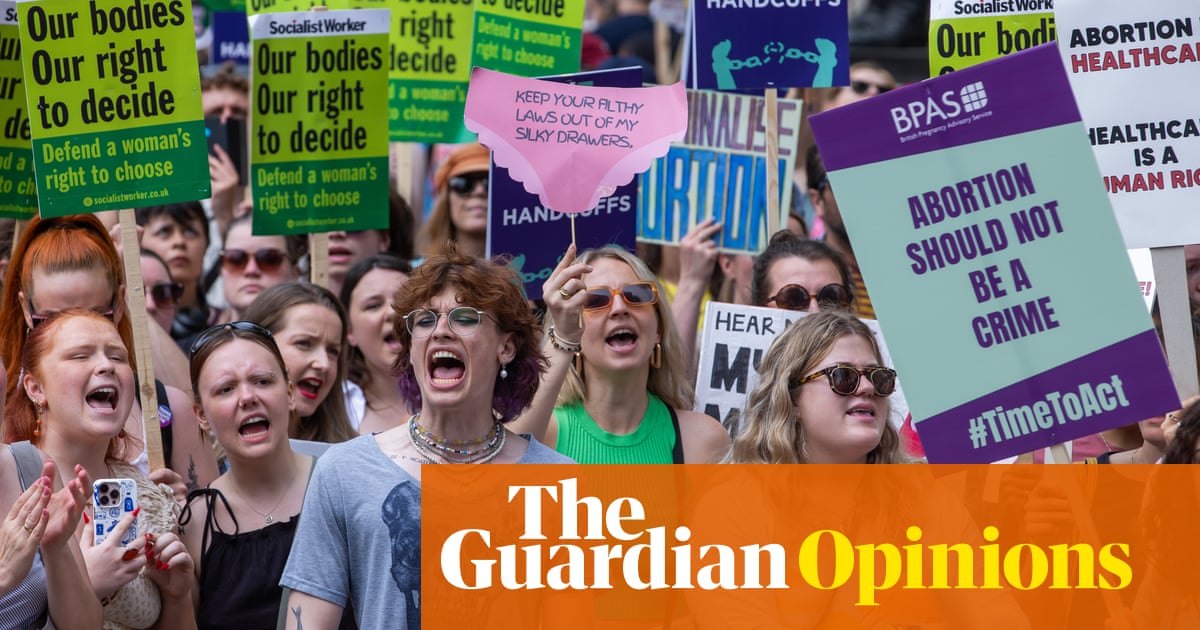For six months after it became impossible, Ahmed Wael Dababish still dreamed of a simple reunion: the day he could once again hug his wife, Asma, his two daughters and his young son.
A nurse from Gaza, Dababish last saw his family in the early hours of one night in December 2023, when Israeli troops attacked a school where they had sought shelter.
Soldiers ordered men into the courtyard, then detained many of them, including Dababish. He was held incommunicado for 13 months without charge, trial, access to a lawyer, or any communication with his family. So when an Israeli shell killed Asma, 29, and their youngest daughter, three-year-old Ghina, in August 2024, there was no way to send news to him.
He was released in February under the ceasefire deal after turning 33 in prison, and was briefly overwhelmed when he saw his father and cousins waiting to welcome him home.
“It was amazing to see someone I knew,” he said. The joy at being surrounded by familiar, beloved faces, after a year of hunger, torture and isolation from everyone he knew, lasted until he asked about his wife and children.
Dababish’s father called up a photo on his phone to help break the unbearable news. It showed Ghina, his baby, laid out for burial beside her young cousin. “This is the moment I still cannot believe,” Dababish said, breaking down again at the memory. “It never crossed my mind that they could be killed.”
As he sobbed, his two surviving children, six-year-old Muadh and eight-year-old Aisha, tried to comfort him with hugs.
His tragedy is not unique. The Observer spoke to three Palestinians from Gaza whose immediate family were killed while they were held by the Israeli military or in Israeli civilian prisons without charge or trial. They only learned about their losses when they were released months later.
The three men are civilians – a nurse, a civil servant and a headteacher of a primary school – who say they have never taken up arms. They had no access to a lawyer in jail and were not allowed to communicate with their families.
Legal rights groups say there are likely to be many other detainees from Gaza who have lost close family in Israeli attacks, but have not been told of their deaths.
Family visits, letters or calls have been banned for Palestinians held by Israel since 7 October 2023, when Hamas launched its surprise attack on Israel, and televisions and radios have been removed from cells.
“They are enforcing this isolation on prisoners. They do not want them to know anything about their families and their loved ones,” said Tala Nasir of the Palestinian prisoners’ rights organisation Addameer.
Prisoners who are able to secure legal representation can sometimes get news from their lawyers, but there are certainly hundreds and probably thousands of detainees from Gaza who do not have a lawyer.
Most are held under Israel’s unlawful combatants law, which allows indefinite detention without producing evidence. The state can hold someone for 45 days before allowing access to a lawyer or bringing them in front of a judge to authorise the detention. At the start of the war, those periods were extended to 180 and 75 days respectively.
Amnesty International said the system “legalises incommunicado detention, enables enforced disappearance and must be repealed”. Despite thousands of detentions, there have been no known trials of anyone captured in Gaza since 7 October 2023.
There is no government provision of lawyers to Palestinian detainees and it is impossible for legal aid groups to support prisoners on the scale now needed, said Jessica Montell, executive director of HaMoked, an Israeli group with decades of experience fighting for Palestinian rights through the Israeli courts.
“I’m sure it is the case that the vast majority of Gaza detainees have not seen a lawyer,” said Montell, adding that HaMoked’s teams have visited a few dozen detainees from Gaza, out of thousands held inside Israel. “There’s nothing like a public defender’s office that is going to meet with all of them. There is no obligation on the state to provide lawyers.”
Bureaucratic obstacles and the remoteness of many detention camps and prisons further limit visits. When lawyers do manage to meet detainees from Gaza, breaking painful news is a regular part of their discussions, according to Nasir.
“Many of the prisoners we were following had one or two of their family members killed in Gaza and they did not know at all. It’s so heartbreaking, and it’s really hard for the lawyer to tell this information to the prisoner.”
In December, the Israeli state said it was holding more than 3,400 Palestinians from Gaza under the unlawful combatants law, in response to a high court petition from campaign group the Public Committee Against Torture in Israel (PCATI).
At least 1,000 people detained in Gaza after 7 October 2023 were released under the ceasefire agreement that broke down this month, but thousands are still in jail. Tal Steiner, director of PCATI, said Israeli prisons were holding about 1,500 detainees from Gaza and that “it would be reasonable to estimate that several hundred [Palestinian] detainees are still being held in military camps.”
The Israeli military declined to say how many Palestinians from Gaza it holds, or how many have met lawyers, but said it did not limit the content of legal meetings held with prisoners or what documents lawyers could bring to them. “Many detainees have already exercised their right to meet with a lawyer,” the Israel Defense Forces said in a statement. “Israel rejects claims that there is a policy of isolating Palestinian detainees from the outside world.”
The Israeli military, the statement added, respected national and international law in its treatment of detainees and rejected all allegations concerning systemic abuse.
Civil servant Ibrahim Dawood is among those freed during the ceasefire. He said he never had access to a lawyer and was physically attacked when he asked for a chance to prove his innocence.
“My friends taught me some words in Hebrew, how to ask the soldiers politely for a meeting with the officer, asking only for justice. They would beat me on the way there and back,” he said. “I kept telling them that they should listen to me and not accuse me of things I didn’t do.” He spent 13 months in prison in the Negev desert, arriving there badly injured after an Israeli attack on the school where he was sheltering with his family.
Ill health, hunger and the beatings weighed on him, but just as bad was the mental pain of being separated from his family, he said. “I didn’t know anything about their fate and knew they had no information about what was happening to me.”
The relief of release, when it came, was very fleeting. He found out that the family home in al-Fakhura, near Jabaliya, had been destroyed in an Israeli airstrike that killed his father, sister, his sister-in-law and her three children. The moment when he heard the news – and collapsed in grief – was captured on video and widely shared on social media.
“The people who should have welcomed me home had been taken from me by the [Israeli] army. On top of the pain of injury and captivity came the pain of losing beloved relatives who I will never see again.”
His surviving family is fragmented between the north and south, and he cannot find space to bring his wife, children and widowed mother together under one roof.
The Israel Prison Service (IPS), which runs civilian jails, said “all prisoners are detained according to the law”. Asked about the abuse and isolation described by Dababish and Dawood, a spokesperson said: “We are not aware of the claims you described and as far as we know, no such events have occurred under IPS responsibility.”

Dababish said he also never saw a lawyer and that Israeli officials had accused him of being a Hamas member because he was a nurse in a state-run hospital. Hamas has governed Gaza for nearly two decades. “I responded that I was a displaced person with my wife and children in an evacuation school, in an area the army had designated as safe.”
The lack of contact with the outside world, or any due process, violates the Geneva conventions, rights groups say. Dababish said it added to the agonies of detention, deepening prisoners’ despair.
“It felt like we were living in a grave. You couldn’t know anything about what was happening outside, where your family was, what was going on.”
His home was bombed, so he is living with his parents and two surviving children in a school turned shelter – which sparks painful memories of the night he was detained – and has little sense of security.
All his family’s worst tragedies have played out in similarly repurposed schools – meant to be places of relative safety for civilians fleeing Israel’s war on Hamas. His wife and daughter were killed in another school, when a shell hit a classroom in the Sheikh Radwan district of Gaza City. “They were displaced in an evacuation shelter. They did nothing wrong,” he said.
Haunted by loss and memories of detention, he is trying to keep going for his children.
“I went to the hospital, registered my name again for work and am waiting for them to call me.”

.png) 1 month ago
31
1 month ago
31
